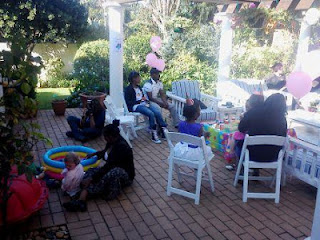Friday, May 26. My soul continued in peace,
but yet in heaviness, because of manifold temptations. I asked Mr. Töltschig the Moravian what to do. He said, You must not fight with them as you did
before, but flee from them the moment they appear, and take shelter in the
wounds of Jesus. The same I learned also from the afternoon anthem, which was,
‘My soul truly waiteth still upon God; for of him cometh my salvation. He
verily is my strength and my salvation; he is my defence, so that I shall not
greatly fall. [. . .] O put your trust in him always, ye people; pour out your
hearts before him, for God is our hope.’
Sat. 27. Believing one reason of my want of
joy was want of time for prayer, I resolved to do no business till I went to
church in the morning, but to continue pouring out my heart before him. And
this day my spirit was enlarged; so that though I was now also assaulted by
many temptations, I was more than conqueror, gaining more power thereby to
trust and to rejoice in God my Saviour.
Sun. 28. I waked in peace, but not in joy.
In the same even quiet state I was till the evening, when I was roughly
attacked in a large company as an enthusiast, a seducer, and a setter-forth of
new doctrines. By the blessing of God I was not moved to anger, but after a
calm and short reply went away, though not with so tender a concern as was due
to those who were seeking death in the error of their life.
This day I preached in the morning at St. George’s , Bloomsbury ,
on ‘This is the victory that overcometh the world, even our faith’, and in
the afternoon at the chapel in Long Acre, on God’s justifying the ungodly—the
last time (I understand) I am to preach at either. ‘Not as I will, but as thou
wilt’!
Mon. 29. I set out for Dummer with Mr.
Wolf, one of the first-fruits of Peter Böhler’s ministry in England
Yet on Wednesday did I grieve the Spirit of
God, not only by not ‘watching unto prayer’, but likewise by speaking with
sharpness instead of tender love, of one that was not sound in the faith.
Immediately God hid his face and I was troubled; and in this heaviness I
continued till the next morning, June 1, when it pleased God, while I was
exhorting another, to give comfort to my soul, and (after I had spent some time
in prayer) to direct me to those gracious words, ‘Having therefore boldness to
enter into the holiest by the blood of Jesus, . . . let us draw near with a true
heart in full assurance of faith.[. . .] Let us hold fast the profession of our
faith without wavering (for he is faithful that promised), and let us consider
one another, to provoke unto love and to good works.’












